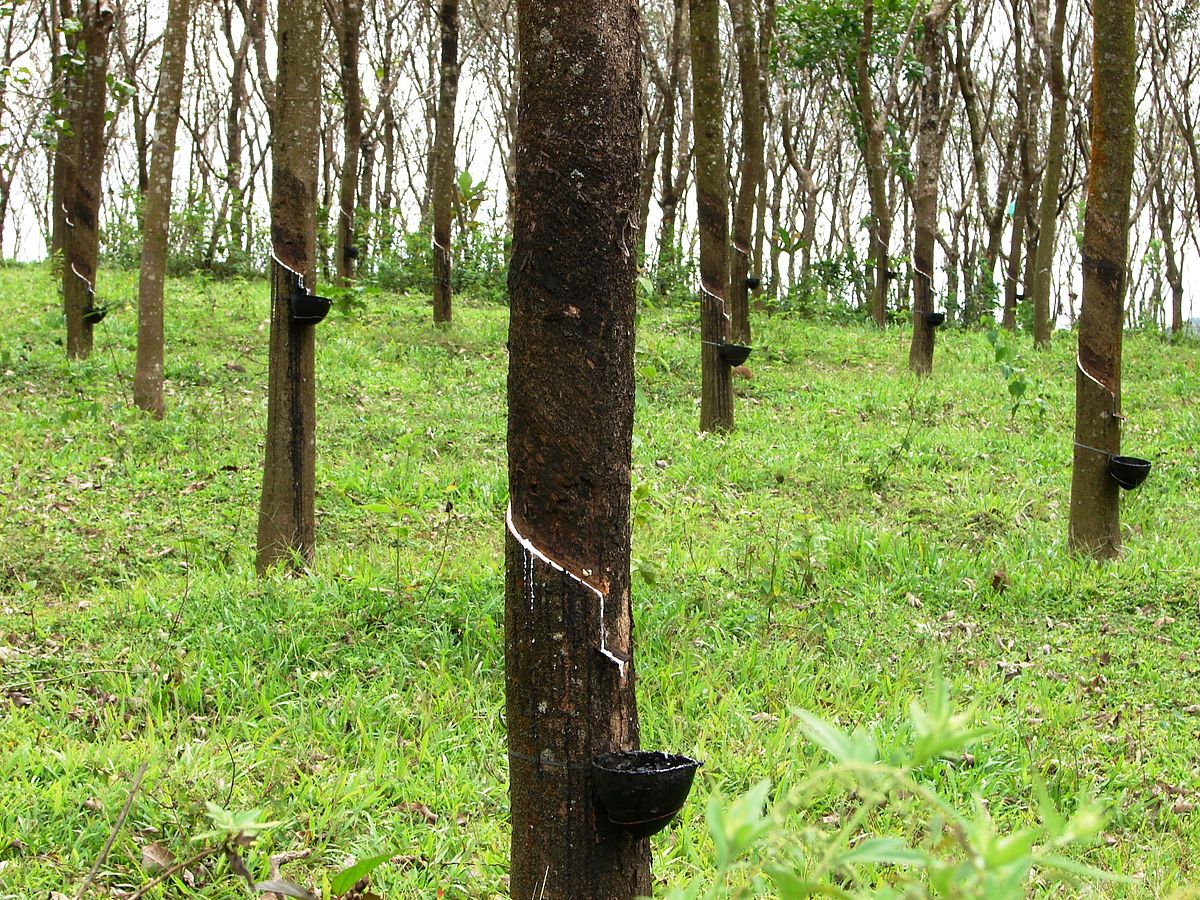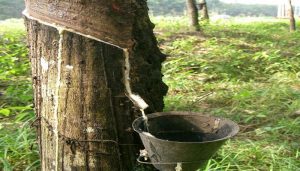The rubber producers allege a lack of consensus in decision-making as the Rubber Board of India has shifted its ideals.

A rubber tree in Kerala. (Credits: Wikimedia Commons)
Rubber has been in the doldrums for a decade now, with the last steep hike in prices witnessed in 2012.
The changes in environmental conditions and the increased cost of production have taken a toll on the rubber producers, especially from the state of Kerala.
The use of synthetic rubber and the increased production of natural rubber in various nations are other factors affecting the lack of increase in rubber prices.
Meanwhile, the Rubber Board of India, situated in Kottayam in Kerala, is being accused of bias towards manufacturing companies, sidelining the interests of the farmers.
It is also alleged that the board has lost its teeth as it constantly fails to bring in regulations for the rubber market.
In India, natural rubber is produced mainly in the state of Kerala. However, efforts to grow rubber are ongoing in northeastern states like Assam, Tripura, and Meghalaya.
Unlike other cultivations, the advantage of rubber is that it can be sold at any point a producer wants, making it a convenient product to cultivate.

The price and production costs of rubber change according to the form and quality of the rubber sheets. (Rubber Board of India official website)
The price and production costs of rubber change according to the form and quality of the rubber sheets.
The most common end-product is RSS (Ribbed Smoked Sheet) grade four. It is used in the manufacturing of tyres.
RSS-1 is used to build parts for surgical equipment, like tubes that are put inside the human body.
As a security measure for Indian rubber growers, there is a 70 percent import duty on latex rubber in India. However, products made of latex — like gloves, condoms, and balloons — don’t have an import duty.
Activists allege that as over 50 percent of such products are imported from Malaysia, many Indian factories endure losses and have had to be shut down.
Suresh Koshy, a former member of the Rubber Board of India and a member of the former National Policy Committee, said during a conversation with South First that India is not producing enough rubber compared to the demand in the market.
He believed imports would be necessary, but opined that at present there was no balance in the functioning of the board.
“The Rubber Board was constituted for the betterment of rubber producers. Ironically, rubber farmers are now not invited [to it], and it has become an institution that favours tyre manufacturers,” said Koshy.
“There were 25 programs targeted to help rubber producers. Now there is none,” he added.
Aby Ipe is the Kottayam district general secretary of the Kerala Karshaka Congress. He grows rubber over three and a half acres of land for his living.
He told South First that the demand for rubber rollers made of iron in the scrap market had increased as many producers were selling their machines.
“Even when the production is law, the price of the rubber is not increasing. When can we expect the prices to go up?” he asked.
“We, the farmers, get to know many about the decisions by the government only after the decision is made. There is no consultation with the farmers,” said Ipe.
The Union Ministry of Commerce and Industry has proposed to repeal the Rubber Act of 1947 and replace it with the Rubber (Promotion and Development) Bill of 2022.
The producers and experts said the move would reduce the board’s authority and also help big tyre-manufacturing companies in the country.
James Jacob, former director of the Rubber Research Institute of India under the Rubber Board, wrote in the New Indian Express: “The bill provides for the Central government to supersede and reconstitute a fresh board, take and implement decisions through any person it decides, keeping the Rubber Board in the dark (Sections 7 and 8), and take full control of the rubber industry (Section 39).”
He also alleged that the new bill would give unbridled power to the Central government and undermine the board’s authority and functional relevance.
Koshy opined that when the existing Rubber Act was amended earlier, there were two important powers given to the board. One was to define the quality of the rubber produced in the country. The other was that if rubber was imported to India, it needed clearance from the Rubber Board.
He alleged that these two powers would be withdrawn through the new bill.

Apr 24, 2024

Apr 24, 2024

Apr 24, 2024

Apr 24, 2024

Apr 24, 2024

Apr 24, 2024